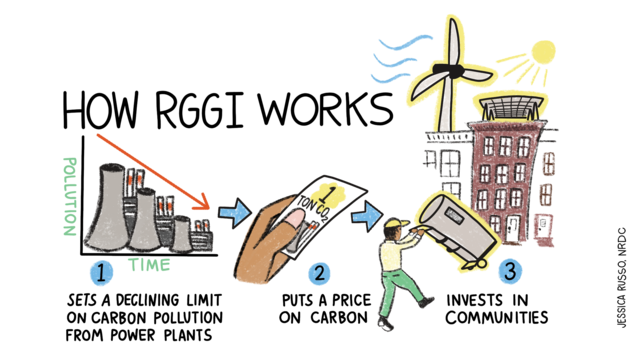Our rebuttal: First, one of the grant programs that RGGI funds is an energy efficiency program that helps reduce energy costs, especially for LMI residents. VCN has a breakdown here that illustrates the critical role RGGI plays in reducing costs for Virginians through efficiency and weatherization improvements. While Youngkin likes to emphasize that RGGI adds an additional few dollars to the average Virginian’s monthly electric bill, the average Virginia family could save nearly $1,000 in electricity costs by making weatherization improvements. As VCN points out, RGGI funding is essential to make this weatherization possible, especially for LMI families.
Additionally, if the concern with RGGI is that costs are passed on to consumers, Virginia doesn’t need to necessarily scrap the entire program. As noted in this Mercury article, Virginia originally designed its RGGI participation program as a “consignment auction” where some auction proceeds would be redistributed to ratepayers to reduce cost impacts. This is how Maryland and three other states handle their participation in RGGI. Virginia could shift to this style of participation in RGGI, still reap the benefits of reducing carbon emissions, and direct funding back to ratepayers instead of to grant programs.






